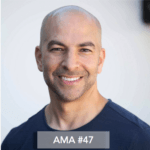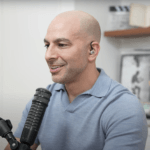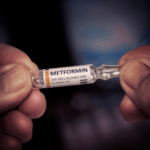
#256 ‒ The endocrine system: exploring thyroid, adrenal, and sex hormones | Peter Attia, M.D.
In this special episode of The Drive, Peter provides a comprehensive overview of the various endocrine systems: the thyroid system,…

#255 ‒ Latest therapeutics in CVD, APOE’s role in Alzheimer’s disease and CVD, familial hypercholesterolemia, and more | John Kastelein, M.D., Ph.D.
“One of the things that is so dangerous about this disorder is that the plaque that you get in FH is a soft plaque.” —John Kastelein

Clearing the air on hormone replacement therapy
My recent podcast with Dr. JoAnn Manson evidently raised as many questions about HRT as it answered, so let’s take a closer look at the evidence for risks and benefits.

#254 – AMA #47: Cold therapy: pros, cons, and its impact on longevity
“If we’re talking about [activating brown adipose tissue] as a solution for overweight or obesity in adults, it’s not a needle mover.” —Peter Attia

#253 ‒ Hormone replacement therapy and the Women’s Health Initiative: re-examining the results, the link to breast cancer, and weighing the risk vs reward of HRT | JoAnn Manson, M.D.
“It’s so important for women to understand that the absolute risks of these hormones are much lower in early menopause than in later menopause.” —JoAnn Manson

How failures in study selection can sink a meta-analysis
Mixing apples and oranges and winding up with garbage

Is a recent clinical trial enough to support the use of semaglutide in treating adolescent obesity?
The imperative for effective weight management strategies in children and teens is clear, but in our desperation for effective obesity treatments, are we allowing ourselves to be too shortsighted on testing?

A new analysis of REDUCE-IT: benefits of omega-3s vs. harm from placebos
A secondary analysis of biomarker data from REDUCE-IT raises questions about the apparent benefits of EPA-derivative icosapent ethyl

#246 – AMA #45: Pros and cons of GLP-1 weight loss drugs and metformin as a geroprotective agent
“The thing that concerns me the most with these drugs. . .is this drive towards sarcopenia.” —Peter Attia

A recent metformin study casts doubts on longevity indications
A new retrospective study contradicts previous evidence of metformin’s potential effects on lifespan extension in a general population, but for real answers, randomized trials are needed.

